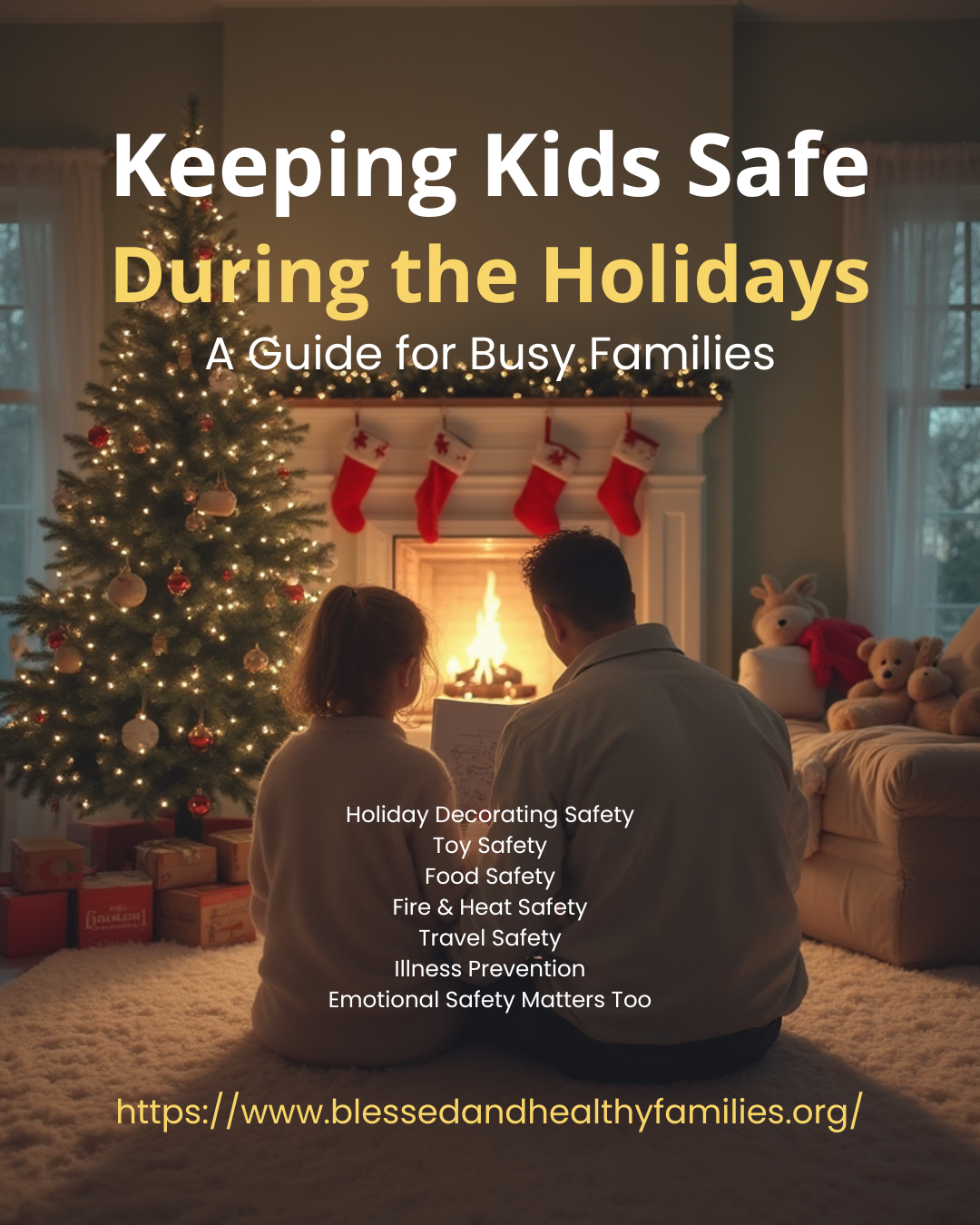
Keeping Kids Safe During the Holidays: A Guide for Busy Families
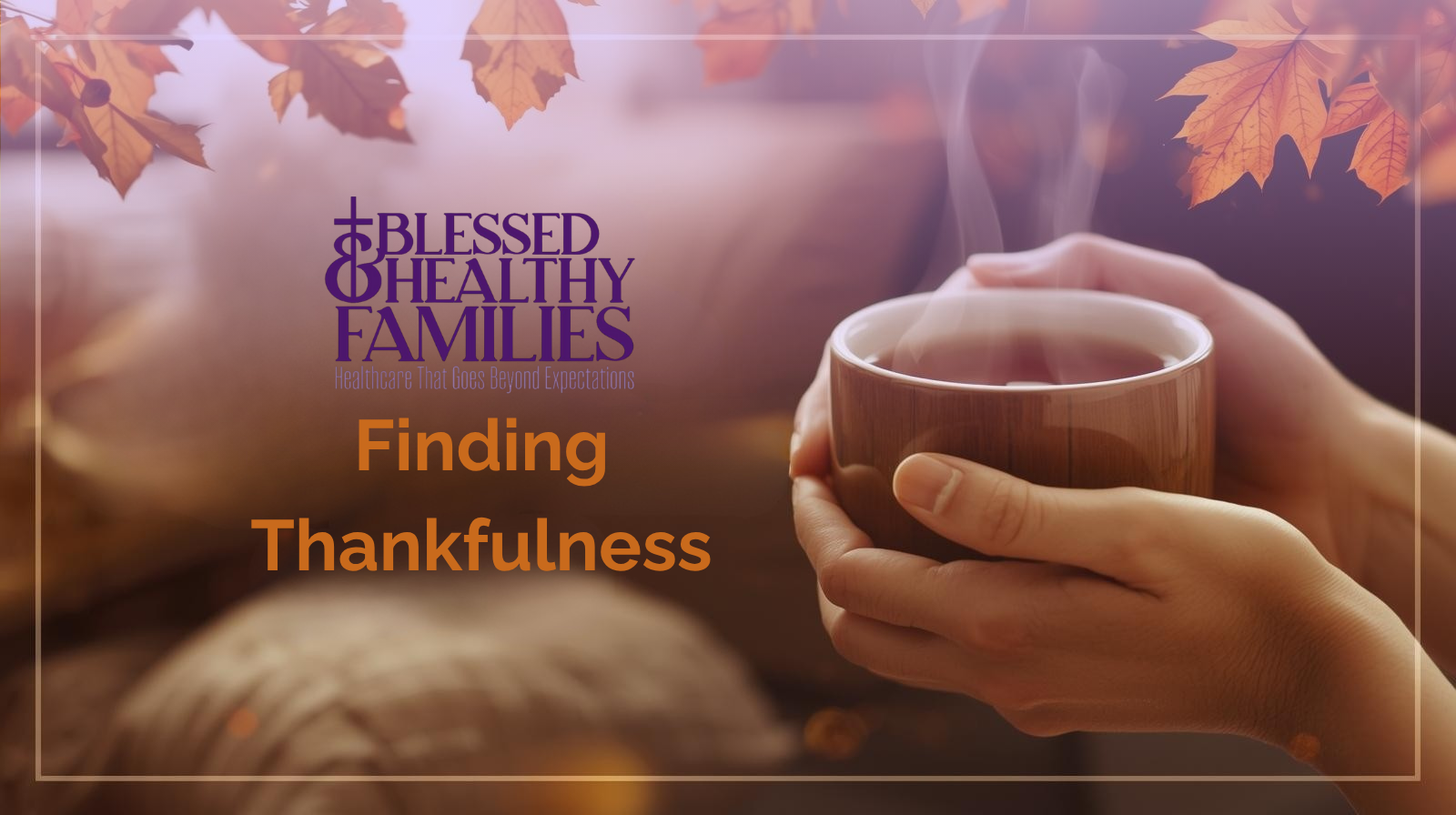
A Heart of Gratitude: Finding Thankfulness This Thanksgiving
As Thanksgiving approaches, let's pause and reflect on the power of gratitude! Discover how thankfulness can improve your mental, emotional, and physical health, and learn practical ways to cultivate a grateful heart in all circumstances. Click to read more and join us in giving thanks!
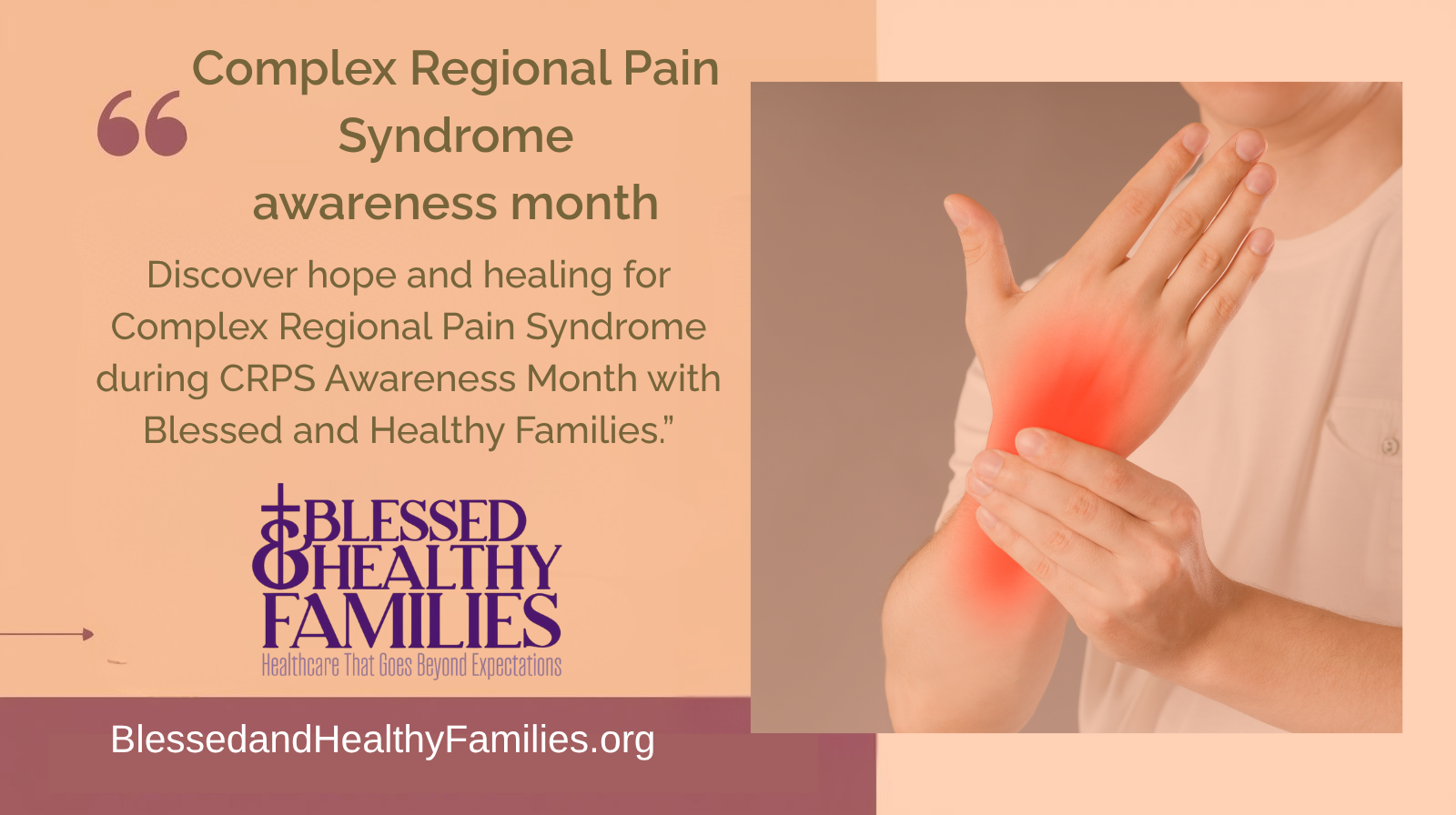
CRPS Awareness: Finding Hope and Healing Through Faith and Whole-Person Care
November is CRPS Awareness Month! Join Blessed and Healthy Families as we share a powerful message of hope, healing, and whole-person care for those living with Complex Regional Pain Syndrome. Learn how faith, supportive therapies like infrared sauna, float therapy, and mindfulness can bring peace and strength. You are seen, supported, and deeply understood. Click to read the full post and find inspiration on your healing journey! #CRPS #CRPSAwareness #ChronicPain #HopeAndHealing #BlessedAndHealthyFamilies

Understanding Diabetes: Empowering Our Community Through Education
Empower your community with knowledge this Diabetes Awareness Month! Learn about preventing and managing diabetes through healthy habits and community support. Small changes can make a big impact. Read the full post to discover how you can take the next step towards a healthier future with Blessed and Healthy Families! #DiabetesAwareness #HealthEducation #BlessedAndHealthyFamilies #DiabetesPrevention

Breaking the Silence: Supporting Healing from Domestic Violence
October is Domestic Violence Awareness Month. Learn how to support healing from domestic violence with insights from Ivy Bagley, FNP, PMHNP. Discover the different forms of abuse, its mental health impact, and how faith, hope, and community can lead to restoration. Find resources and take a step towards safety. If you or someone you know is in an unsafe relationship, call the National Domestic Violence Hotline at 1-800-799-SAFE (7233) or visit thehotline.org for confidential help

Celebrating Every Ability: Supporting People with Disabilities in the Workplace
October is National Disability Employment Awareness Month! Let's celebrate every ability and foster inclusive workplaces. Learn how small changes in flexibility, accessibility, understanding, and education can make a huge difference. See beyond labels and embrace diverse strengths. #DisabilityInclusion #WorkplaceEquity #NDEAM #BlessedAndHealthyFamilies

The Hidden Weight of a Breast Cancer Diagnosis: A Mental Health Perspective
A breast cancer diagnosis impacts mind, body, & spirit. Ivy Bagley, FNP, PMHNP, explores the emotional whirlwind, the importance of mental health in healing, & the power of support. You don't have to face it alone. Find strength, faith, & renewed appreciation for life. #BreastCancerAwareness #MentalHealth #CancerSupport

When Heaven Cradles Our Babies: Honoring Pregnancy and Infant Loss Awareness Month
October is Pregnancy & Infant Loss Awareness Month. 💖💙 We honor the babies who left too soon and the parents who carry silent grief. Your pain is seen, your love is eternal. It's okay to seek help for the anxiety/PTSD that follows—you are not alone. 🙏 (Psalm 34:18) #InfantLossAwareness #GriefSupport #Healing

Lice Management: A Guide for Families
This comprehensive guide on lice management by a Family Nurse Practitioner covers what lice are, how they spread, who gets them, and effective detection methods. It details OTC, prescription, and manual treatment options, debunks natural remedies, and offers home cleaning and prevention tips. The post emphasizes reassuring children and discreetly informing schools, and lists resources and when to consult a healthcare provider.

Helping Your Child Grow Through Reading
Did you know reading is a superpower for kids? 🧠 A Family Nurse Practitioner shares why reading goes beyond school to boost cognitive growth, emotional well-being, and family connection. Just 15 minutes a day can make a huge difference! 📚 #ReadingIsFundamental #FamilyLiteracy #EarlyEducation #ChildDevelopment #ParentingTips

September Is World Suicide Prevention Month: Supporting Families and Offering Hope
September is World Suicide Prevention Month. Let's talk openly about mental health in our families. Learn to spot the signs of a loved one struggling and remember that hope and help are always available. You are not alone. 💚 If you need help, dial or text 988. #WorldSuicidePreventionDay #SuicidePrevention #MentalHealthMatters #FamilyHealth #988Lifeline
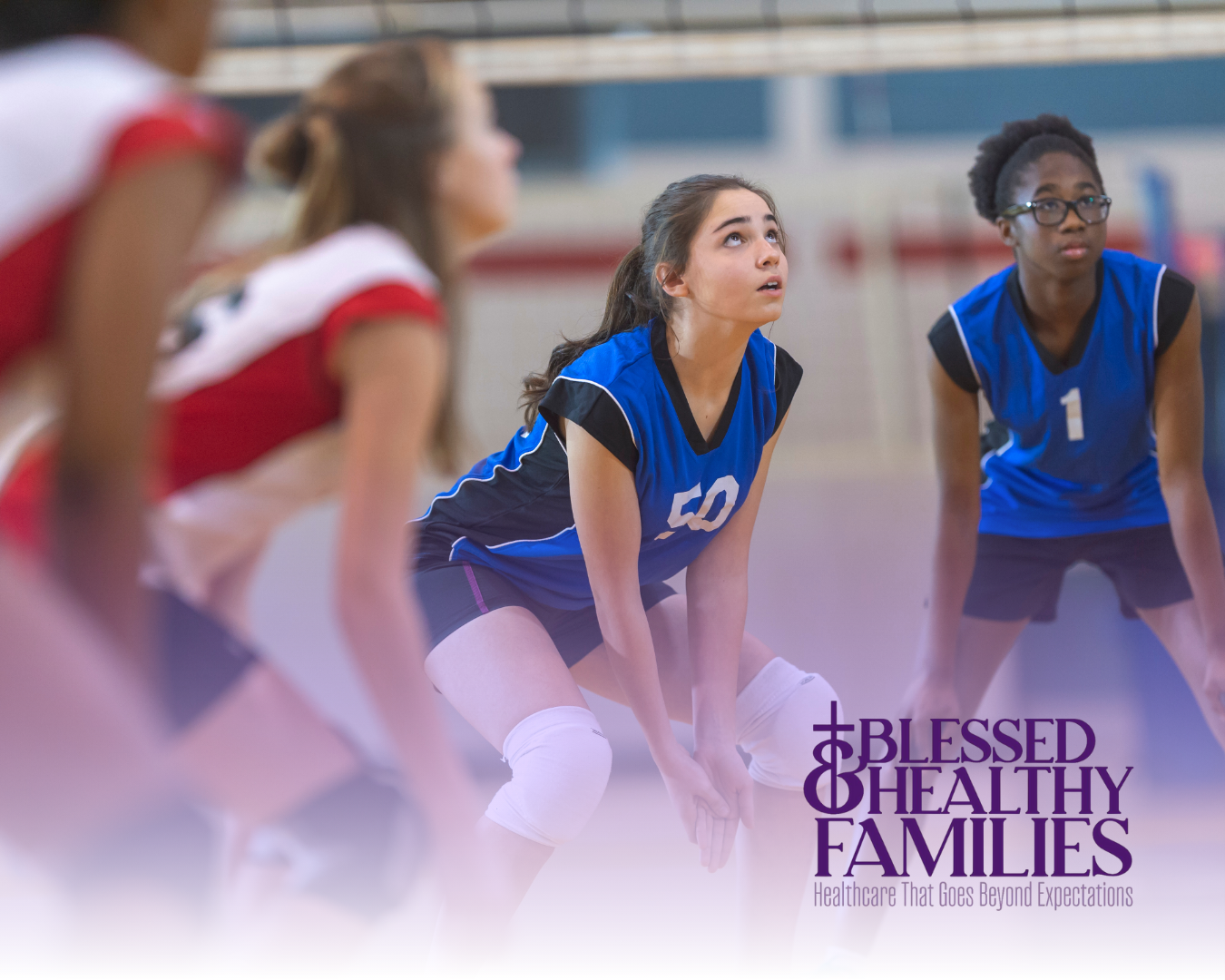
Staying Safe During Fall Sports
Fall sports are here! Keep your athlete safe and healthy with these tips from a Family Nurse Practitioner: 🏈⚽️
✅ Get a sports physical
✅ Hydrate & eat right
✅ Use proper gear
✅ Warm-up/cool-down
✅ Know concussion signs
✅ Prioritize rest Stay safe and have fun this season!
#fallsports #sportsafety #youthsports #sportsphysical #concussionawareness
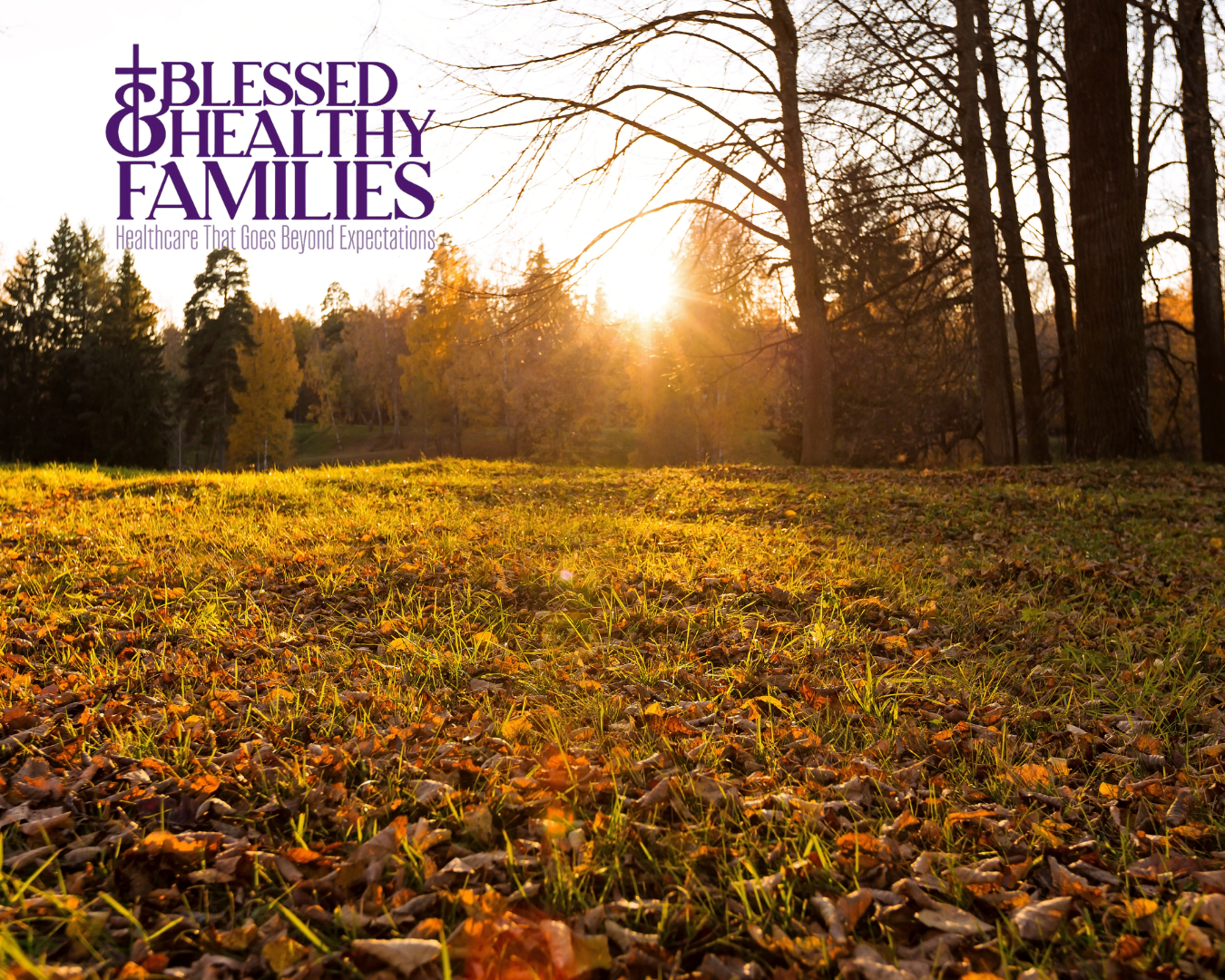
Embracing the Outdoors This Fall: A Parent’s Guide to Mental & Physical Wellness
Your well-being matters, and so does your child’s. If those 'fall blues' feel heavier than usual—marked by persistent sadness, irritability, fatigue, or a loss of interest in activities—it's wise to consider it more than a simple seasonal shift. Don't hesitate to reach out to a trusted healthcare provider. As both an FNP and PMHNP, I’m here to remind you that asking for help is a sign of strength, not weakness.
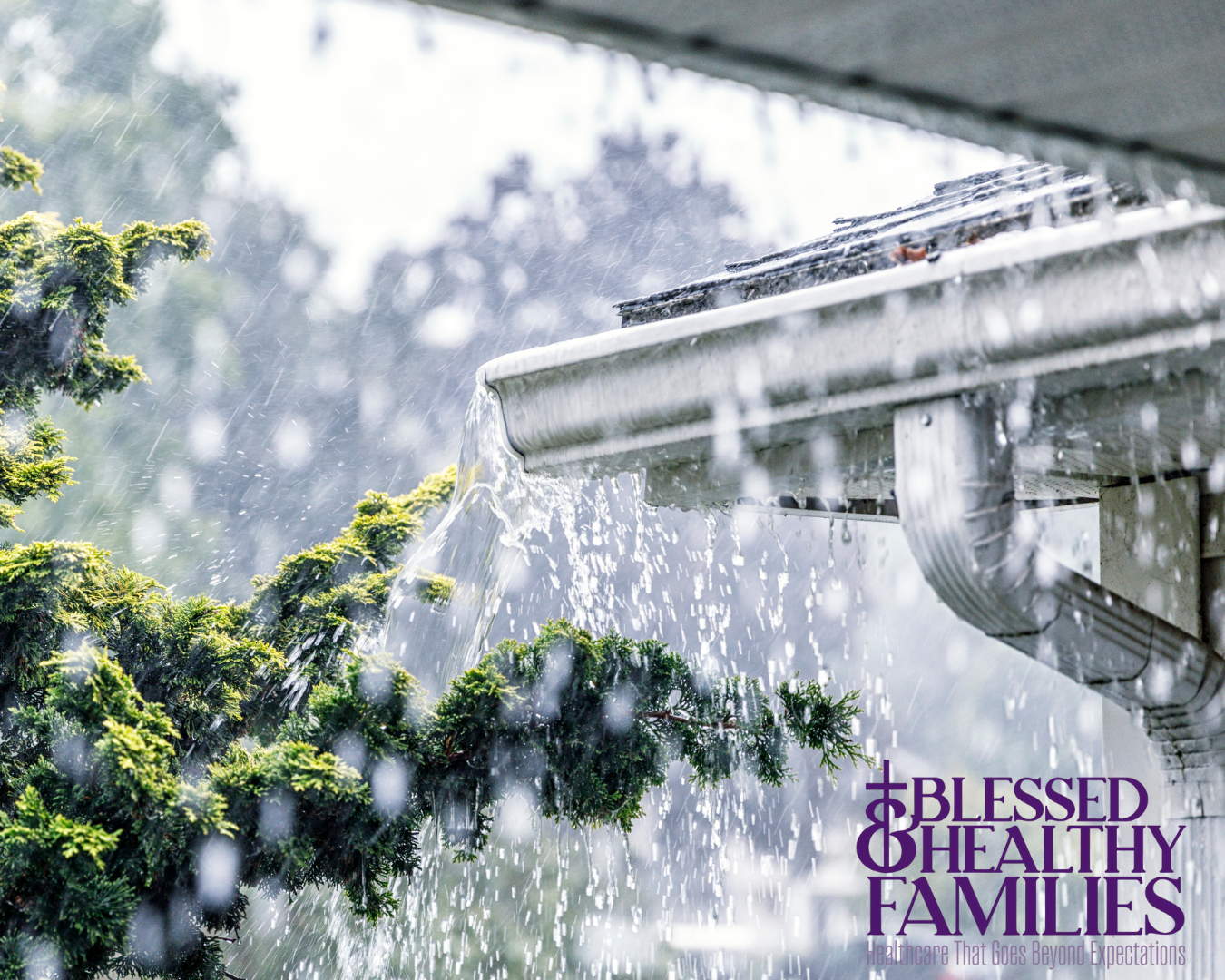
Storm Preparedness: A Family Guide to Staying Safe and Healthy
Storm season is here — is your family prepared?
Being ready isn’t about panic — it’s about peace of mind. A few simple steps like making an emergency plan, stocking a 72-hour kit, and preparing a medical go-bag can keep your loved ones safe. Don’t forget kids, seniors, and pets too!
Preparedness is an act of love 💚 Take time this week to talk through your family’s storm plan.
#StormPreparedness #FamilySafety #BlessedAndHealthyFamilies

How you can help make the first day of school positive
The first day of school is more than a date on the calendar—it’s a reset for routines, relationships, and learning. With a little planning, emotional awareness, and plenty of encouragement, you can help your child walk into that classroom ready to learn, grow, and thrive.

Navigating Neurodiversity and Nurturing: Breastfeeding in the Context of Developmental Differences
Supporting breastfeeding for families with neurodevelopmental differences is crucial. Many newborns with conditions like Down Syndrome or Autism Spectrum Disorder (ASD) face unique challenges that require specialized support. It’s essential to adapt techniques for oral motor challenges, create calming feeding environments, integrate mental health support, and collaborate with specialists. By addressing these needs, we can enhance the breastfeeding experience for all families.

Beyond the Bump: Breastfeeding's Unseen Impact on Perinatal Mental Health
As a Psychiatric-Mental Health Nurse Practitioner and Lactation Consultant, I focus on the vital link between breastfeeding and maternal mental health. The postpartum period can lead to stress and feelings of inadequacy for parents facing breastfeeding challenges. It’s crucial to support new parents holistically by integrating mental health resources into lactation support, fostering a nurturing environment for families regardless of their feeding journey.

Bridging the Divide: Why Inclusive Breastfeeding Support is the Heart of a Healthy Community
As World Breastfeeding Week nears, I reflect on the barriers many families face in their breastfeeding journeys. This year's theme, “Prioritize Breastfeeding: Create Sustainable Support Systems,” emphasizes equitable access to support. In rural Eastern North Carolina, challenges include limited access to lactation consultants and cultural barriers. Telehealth has transformed our approach, offering essential guidance. By fostering inclusive and culturally sensitive support, we build healthier communities.
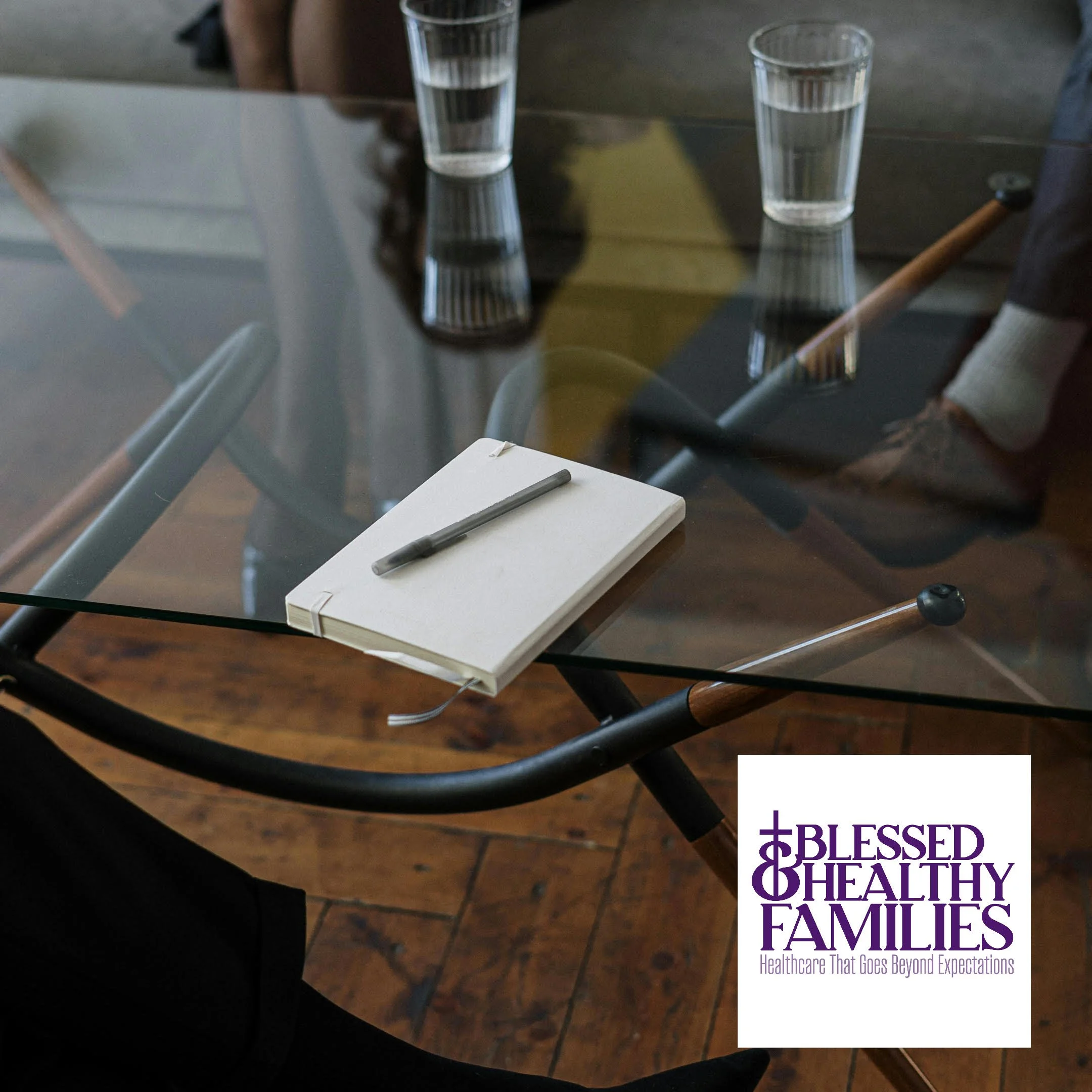
Understanding the Role of a Psychiatric-Mental Health Nurse Practitioner
Mental health is just as important as physical health—and it’s finally starting to get the attention it deserves. As a Psychiatric-Mental Health Nurse Practitioner (PMHNP) is a highly trained, compassionate provider who diagnoses, treats, and manages mental health conditions across the lifespan.
Let’s dive deeper into what that really means and why PMHNPs play such a vital role in today’s healthcare system.
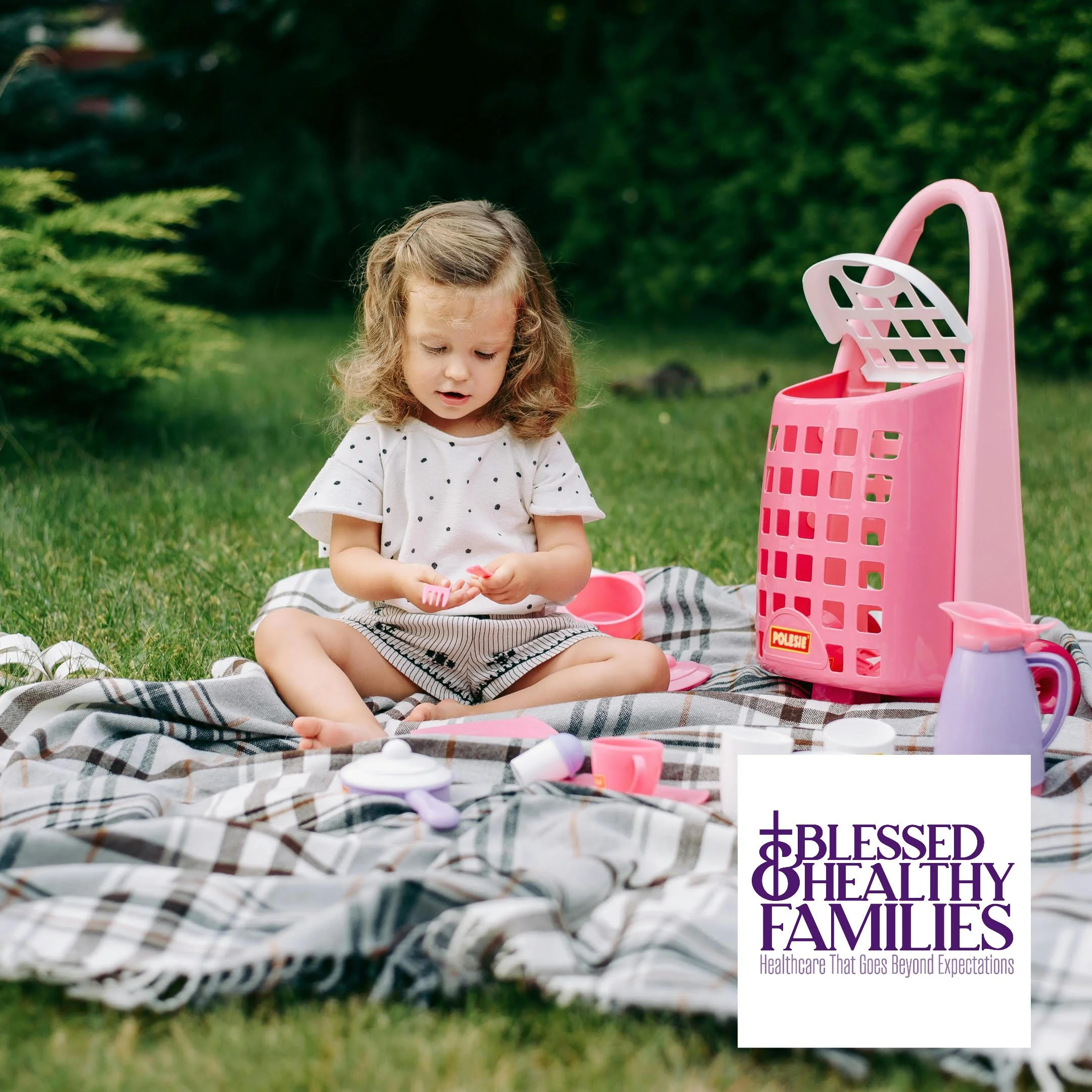
Bite Back: A Nurse Practitioner’s Guide to Insect Bite Prevention
Whether you're spending time at the park, camping, or just playing in the backyard, insect bites are a common warm-weather concern for families. Here’s what you need to know about preventing insect bites and enjoying the outdoors worry-free.
